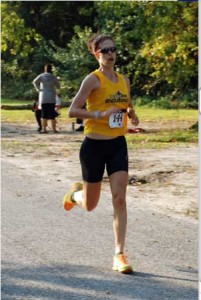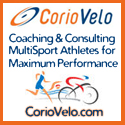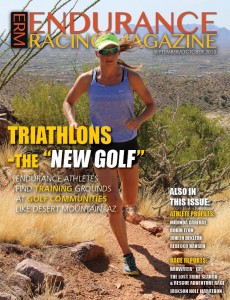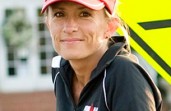By Chelsea H. Bryan
Fighting fad diets and donning running shoes in the nick of time, this food-fitness guru guides you on the path to smart eating for fast racing.
Crystal Witte, R.D., is a dietitian at Riverside Wellness and Fitness Center in Newport News, Va., and an Ironman triathlete. She’s competed in 4 ultra marathons (three 50K races and one 50-miler), one Ironman triathlon (140.6 miles), 4 half Ironman races (70.3 miles), 1 open marathon (26.2 miles), and many other half marathons and shorter races.
Witte provides advice on what you need to be eating on race day, during training weekends, and, really, all the time. Witte is a pro at cutting down “fad diets,” and building up the triathlete’s triumvirate: carbohydrates, lean protein and healthy fats—in that order.
What is your best advice to an endurance runner for real race time fuel?
Endurance athletes should find a fueling plan that works well for them. The specific foods can vary from person to person, since different people have different digestive systems. For instance, the traditional pre-race pasta dinner might be a great option for many athletes, but not for those who have a difficult time digesting gluten (a protein found in wheat, barley and rye). That being said, the cornerstone of fuel (50-65 percent of total calories) should come from quality carbohydrates, particularly when training volume and intensity are high and in the few days prior to a long race. Good carbohydrate options include brown rice, potatoes, quinoa, oats, bread, pasta, veggies and fruit. Carbs are also found in milk and beans and legumes.
Sometimes athletes give themselves a “free card” to eat unlimited amounts of carbs the day or two before a race, which is not necessary and can cause gastrointestinal distress the day of the race. Instead of binging on carbs, choose foods that are a good source of carbs, and not as much fat.
What do you recommend to those going through hard times in a GI sense—those who can’t seem to figure out what their stomach will accept during training for a long-distance race?
For those with IBS, I highly recommend the FODMAP elimination diet. It helps IBS sufferers pinpoint foods that are uniquely troublesome to them. This is something that has helped me with my IBS! Check out the book, “IBS Free At Last!” by Patsy Catsos, MS, RD, to learn more about the diet, or contact a registered dietitian for more guidance.
Any other advice, knowledge, or opinions you’d like to share regarding a distance racing diet?
Avoid fad diets, especially those that eliminate entire food groups. Instead, focus on the quality of the foods chosen. Often, people fall into the trap of generalizing certain foods as being “good” or “bad”, and don’t factor in the overall variety of their eating plan and the nutrient density of the foods they eat.
What foods, products or fuel work personally for you?
There are certain foods I do not digest well, such as gluten, onions, garlic and lactose (found in milk products). Fructose (the fruit sugar) in large amounts can interfere with ideal digestion for me, so I make sure to monitor my intake of these trigger foods prior to an important workout or race. However, many athletes have a gut made of steel and can digest just about anything!
The day before a race (and most days in general), I’ll make sure each meal provides a good source of carbohydrates for energy (the breakdown form of glucose fuels hard-working muscles), a moderate amount of lean protein and a bit of healthy fat. Because fat is very filling and takes a long time to digest, it’s important to monitor one’s fat intake prior to a long workout or race to allow yourself to eat adequate carbohydrates to fuel your energy needs.
For ultra runners or those competing in extra long endurance events, it can be tempting to eat whatever is available at the aid stations or fuel stops. Ultra marathons are known for providing “real food”, which can provide a welcome change from the monotony of energy gels and sports drinks; but its important for athletes to choose low-fiber and low-fat options to prevent food from sitting in the stomach. Stick with salted, skinless potatoes, pretzels, gummy bears or other fat free candy like jellybeans. Some fruit is okay. Limit intake of foods with fat, like PB&J, and skip the obvious foods like bacon and biscuits altogether! Even too much fruit throughout the race can be problematic due to a large amount of fiber and fructose (the fruit sugar).











